![]() Every revolution has its origins, and for K-pop, those origins lie within one man and his disregard for the limits and restrictions of the Korean music industry – Seo Taiji. Seo Taiji is a highly-respected figure in the Korean music industry, and he's been likened to a legend. Dubbed as the 'Godfather' and 'Cultural President' of Korean music, he's created an impact so great that the chronology of Korean music history has been divided into 'Pre-Seo Taiji' and 'Post-Seo Taiji.'
Just who is this man, and how did he shake up the Korean music industry?
Every revolution has its origins, and for K-pop, those origins lie within one man and his disregard for the limits and restrictions of the Korean music industry – Seo Taiji. Seo Taiji is a highly-respected figure in the Korean music industry, and he's been likened to a legend. Dubbed as the 'Godfather' and 'Cultural President' of Korean music, he's created an impact so great that the chronology of Korean music history has been divided into 'Pre-Seo Taiji' and 'Post-Seo Taiji.'
Just who is this man, and how did he shake up the Korean music industry?
![]() Seo Taiji began his professional music career as a member of Sinawe, Korea's first heavy metal band. Unfortunately, the project was short-lived for him, as he joined the group in 1990 and it disbanded in 1991. Prior to this, however, Seo Taiji decided to drop out of high school because he felt like he couldn't continue participating in a system that only manipulated and corrupted youths. Strong-willed and highly disdainful of authoritative control, this mindset would seep its way into his music time and time again.
In 1992, Seo Taiji re-emerged onto the music scene with a new group called "Seo Taiji & Boys". The ex-metal rocker enlisted dancers Lee Juno and Yang Hyun Suk to form a trio that would challenge the boundaries of musical genres.
With the release of their first single, "Nan Arayo" ("I Know"), the boys became an overnight sensation. Korea had never experienced music like the kind that the group was introducing then. Seo Taiji & Boys had successfully fused rap lyrics and pop music, and delivered it through hip hop dance. While the older audience shunned the 'senseless noise' of rap and its questionable lyrical content, it became an immediate hit with the younger generations. Singing it in the classrooms and saving up to grab the tapes, kids clung to it because it was different – before Seo Taiji & Boys, there was only innocuous pop songs or the trot music of their parents.
Seo Taiji began his professional music career as a member of Sinawe, Korea's first heavy metal band. Unfortunately, the project was short-lived for him, as he joined the group in 1990 and it disbanded in 1991. Prior to this, however, Seo Taiji decided to drop out of high school because he felt like he couldn't continue participating in a system that only manipulated and corrupted youths. Strong-willed and highly disdainful of authoritative control, this mindset would seep its way into his music time and time again.
In 1992, Seo Taiji re-emerged onto the music scene with a new group called "Seo Taiji & Boys". The ex-metal rocker enlisted dancers Lee Juno and Yang Hyun Suk to form a trio that would challenge the boundaries of musical genres.
With the release of their first single, "Nan Arayo" ("I Know"), the boys became an overnight sensation. Korea had never experienced music like the kind that the group was introducing then. Seo Taiji & Boys had successfully fused rap lyrics and pop music, and delivered it through hip hop dance. While the older audience shunned the 'senseless noise' of rap and its questionable lyrical content, it became an immediate hit with the younger generations. Singing it in the classrooms and saving up to grab the tapes, kids clung to it because it was different – before Seo Taiji & Boys, there was only innocuous pop songs or the trot music of their parents.
![]() With each new album, the boys began to shed the dance and pop influences in their music and focused more on the sounds of rock and heavy metal. Naturally, rap was still a central element for them, since they remained committed to delivering messages criticizing society and stimulating individual thought in their listeners.
One of their more controversial songs, "Gyosil Idea" ("Classroom Idea"), openly blasted Korea's educational system as 'brain-washing' and 'manipulative'. It's not surprising that the boys received harsh criticisms in turn with ironical accusations of corruption and negative influence over young minds. Tensions between the avant-garde group and the wary guardians of morality only worsened with a certain accusation of ridiculous proportions.
In 1994, the boys were accused of backwards masking Satanic messages in their songs. 'Backwards masking' means to insert hidden messages into songs that can only be heard when they're played backwards. Although these allegations were eventually discredited, it signaled to the boys that their work was successful as 'provocative' and 'liberal'.
A persistent thorn in their sides were snide remarks about plagiarism from the West. Seo Taiji & Boys were consistently attacked for 'biting' the musical styles of Western artists like Cypress Hill and Korn, who also utilized rap, rock, and hip hop in their work. Yet Seo Taiji shrugged it off, and continued to focus on evolving his music to ensure that it drifted seamlessly between genres.
With each new album, the boys began to shed the dance and pop influences in their music and focused more on the sounds of rock and heavy metal. Naturally, rap was still a central element for them, since they remained committed to delivering messages criticizing society and stimulating individual thought in their listeners.
One of their more controversial songs, "Gyosil Idea" ("Classroom Idea"), openly blasted Korea's educational system as 'brain-washing' and 'manipulative'. It's not surprising that the boys received harsh criticisms in turn with ironical accusations of corruption and negative influence over young minds. Tensions between the avant-garde group and the wary guardians of morality only worsened with a certain accusation of ridiculous proportions.
In 1994, the boys were accused of backwards masking Satanic messages in their songs. 'Backwards masking' means to insert hidden messages into songs that can only be heard when they're played backwards. Although these allegations were eventually discredited, it signaled to the boys that their work was successful as 'provocative' and 'liberal'.
A persistent thorn in their sides were snide remarks about plagiarism from the West. Seo Taiji & Boys were consistently attacked for 'biting' the musical styles of Western artists like Cypress Hill and Korn, who also utilized rap, rock, and hip hop in their work. Yet Seo Taiji shrugged it off, and continued to focus on evolving his music to ensure that it drifted seamlessly between genres.
![]() After delivering four full-length and two live albums, Seo Taiji & Boys decided to disband in 1996. It was clear that Seo Taiji was heading progressively towards rock and metal music, while Yang Hyun Suk wanted to retain that hip hop flavor. Many understood the decision to be based on musical differences, while some believed that Seo Taiji could no longer stand the venom of the media and wanted to withdraw from the spotlight. Yet member Juno revealed years later that Seo Taiji abruptly made the decision himself, and announced that he wanted to disband while they were recording their fourth album. Juno and Yang Hyun Suk were stunned, but Seo Taiji was adamant in retiring from the music scene. Naturally, he said, they had no choice but to separate.
Whether Juno's account is accurate or not, no one can really say. But after the break up, Seo Taiji withdrew to New York City and resided there quietly for two years. He returned to Korea in 1998 with his first solo album, "Seo Taiji"; it wasn't an huge hit, but it allowed him to make a successful comeback. His popularity as a solo artist really exploded with the 2000 release of "Ultramania", through which he fully embraced his metal side and delivered hits in the form of "Tank", "Internet War", and "Ultramania".
After delivering four full-length and two live albums, Seo Taiji & Boys decided to disband in 1996. It was clear that Seo Taiji was heading progressively towards rock and metal music, while Yang Hyun Suk wanted to retain that hip hop flavor. Many understood the decision to be based on musical differences, while some believed that Seo Taiji could no longer stand the venom of the media and wanted to withdraw from the spotlight. Yet member Juno revealed years later that Seo Taiji abruptly made the decision himself, and announced that he wanted to disband while they were recording their fourth album. Juno and Yang Hyun Suk were stunned, but Seo Taiji was adamant in retiring from the music scene. Naturally, he said, they had no choice but to separate.
Whether Juno's account is accurate or not, no one can really say. But after the break up, Seo Taiji withdrew to New York City and resided there quietly for two years. He returned to Korea in 1998 with his first solo album, "Seo Taiji"; it wasn't an huge hit, but it allowed him to make a successful comeback. His popularity as a solo artist really exploded with the 2000 release of "Ultramania", through which he fully embraced his metal side and delivered hits in the form of "Tank", "Internet War", and "Ultramania".
![]() To this day (and it's been more than 15 years since its release) the popularity of "Nan Arayo" remains untouched and unfaded. Everyone (and I do mean EVERYONE) knows about "Nan Arayo", and its one of the more popular tracks to belt out at karaoke bars.
If the song hasn't faded, then what became of the "Boys"? Yang Hyun Suk moved on to become the CEO of YG Entertainment, and Lee Juno is around in the industry somewhere, although it's not exactly clear what he's been up to these days.
As for Seo Taiji himself, he's undoubtedly working on his next album. He's a bit of a recluse, so we'll just have to wait on some official news. Until then, check out some of the best tracks from Seo Taiji & Boys as well as his solo works below!
--
SEO TAIJI & BOYS
<"Nan Arayo">
--
<"Come Back Home">
--
<"Gyosil Idea">
--
SEO TAIJI SOLO
<"Ultramania">
--
<"Tank">
--
<"Internet War">
--
<"Robot">
--
<F.M Business>
**This song actually got banned due to its usage of the word 'f*ck' and its aggressive content
To this day (and it's been more than 15 years since its release) the popularity of "Nan Arayo" remains untouched and unfaded. Everyone (and I do mean EVERYONE) knows about "Nan Arayo", and its one of the more popular tracks to belt out at karaoke bars.
If the song hasn't faded, then what became of the "Boys"? Yang Hyun Suk moved on to become the CEO of YG Entertainment, and Lee Juno is around in the industry somewhere, although it's not exactly clear what he's been up to these days.
As for Seo Taiji himself, he's undoubtedly working on his next album. He's a bit of a recluse, so we'll just have to wait on some official news. Until then, check out some of the best tracks from Seo Taiji & Boys as well as his solo works below!
--
SEO TAIJI & BOYS
<"Nan Arayo">
--
<"Come Back Home">
--
<"Gyosil Idea">
--
SEO TAIJI SOLO
<"Ultramania">
--
<"Tank">
--
<"Internet War">
--
<"Robot">
--
<F.M Business>
**This song actually got banned due to its usage of the word 'f*ck' and its aggressive content
0
0
, ,
 Posted by 4 pts Thursday, November 18, 2010
Posted by 4 pts Thursday, November 18, 2010
Way Back Wednesday: Seo Taiji & Boys - "Nan Arayo"

0
51,770
Share
Be the first to vote
 SHARE
SHARE


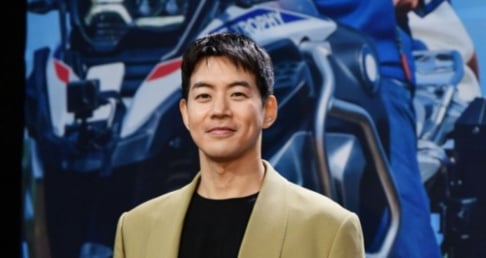




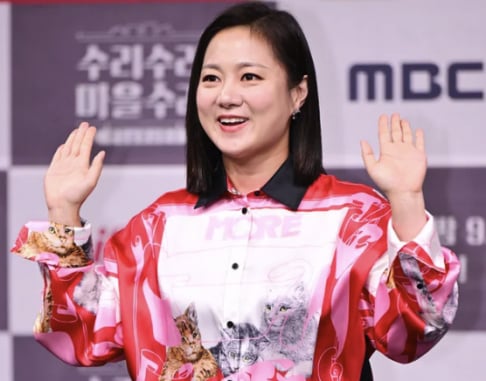

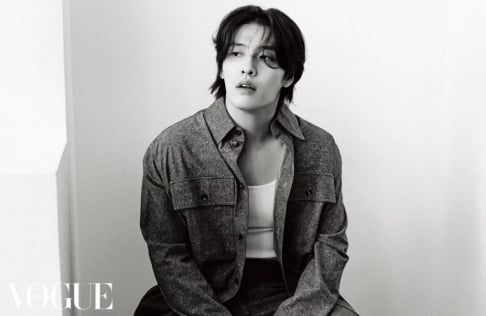
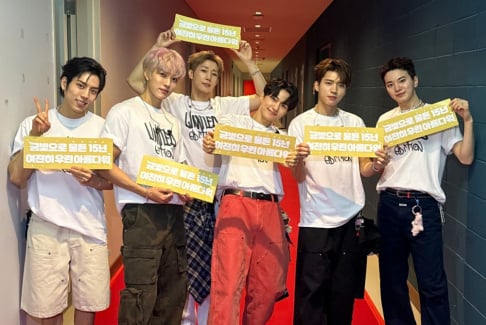


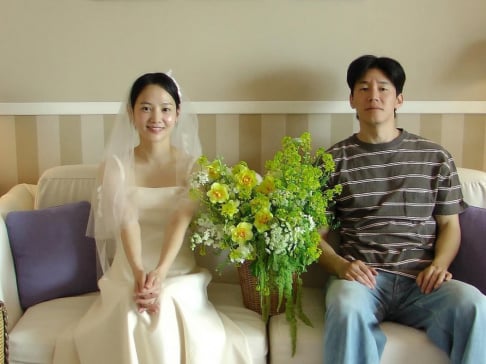

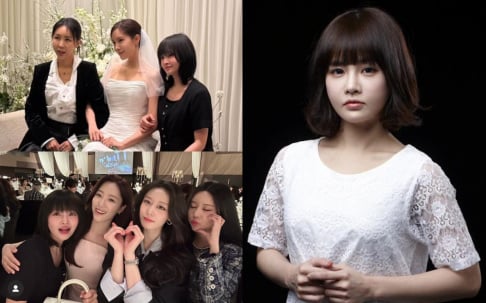
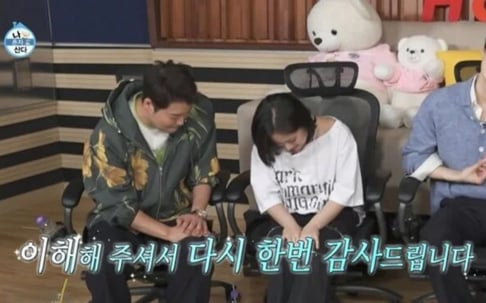
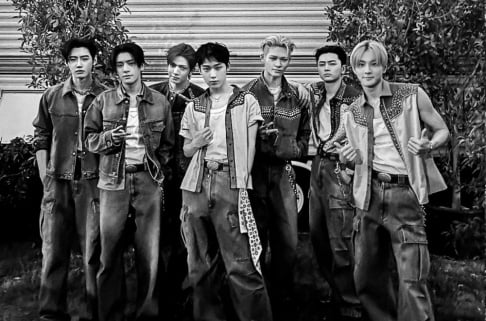






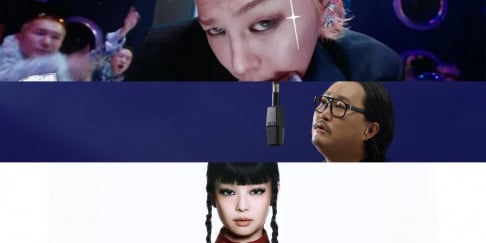




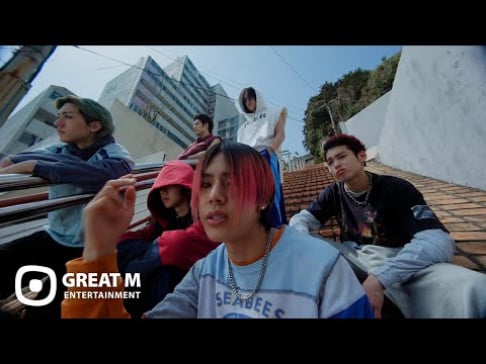
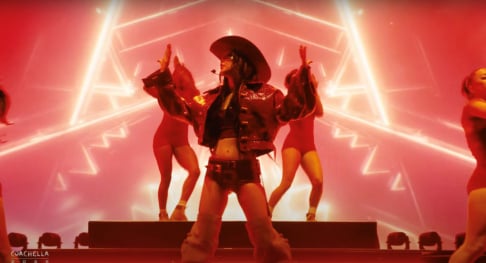









Log in to comment